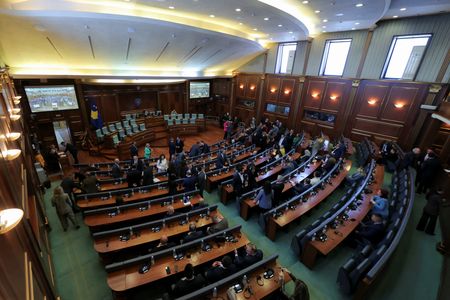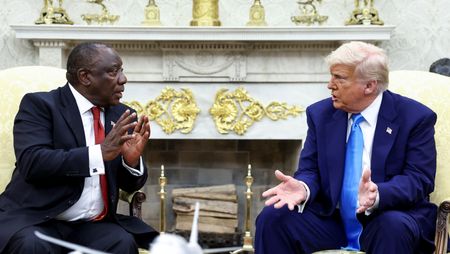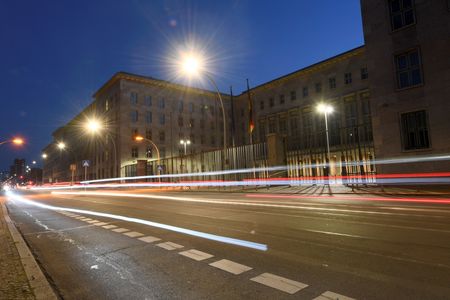By Fatos Bytyci
GDANSK, Poland (Reuters) -Kosovo’s parliament failed to elect a new speaker for the 15th straight time on Wednesday, prompting fears of an economic backlash after months of political stalemate in one of Europe’s poorest countries.
Lawmakers have been meeting every 48 hours since mid-April to elect a new speaker, a step required before Prime Minister Albin Kurti, a leftist nationalist who failed to win a majority in a February election, can try to form a coalition government.
But that is proving difficult without cross-party support: Albulena Haxhiu, Kurti’s candidate for speaker, has repeatedly fallen shy of the 61 votes needed. On Wednesday she received 54 votes.
The parliament is set to reconvene in two days. No law limits the stalemate, although some analysts have said that President Vjosa Osmani could call snap elections if it continues.
However, if parliament keeps failing to elect a speaker, experts say Kosovo, a small Balkan country of 1.6 million people that gained independence from Serbia in 2008, risks delaying or losing sorely needed funding from the European Union and the World Bank that is earmarked for health, education and green energy.
“There are projects and loans worth 700-800 million waiting to be voted in the parliament that are hanging because of the crisis,” Lulzim Rafuna, president of Kosovo’s Chamber of Commerce, told Reuters.
“Businesses are in limbo without knowing what reforms, fiscal politics and what taxes they will have from the new government.”
Following a request for comment, Kosovo’s outgoing deputy prime minister Besnik Bislimi said in a statement that no EU funds would be lost, and that a speaker should be approved so that parliament could vote through the funding.
The crisis comes after an acrimonious election in which the opposition argued over major issues including Kosovo’s tense relations with Serbia – an issue that led the EU to cut funding to Kosovo in 2023.
In a Tuesday interview with public broadcaster RTK, Kurti offered no sign that he would change his candidate despite opposition demands to do so.
“They (the opposition) don’t believe that I have 61 votes to become prime minister and I am telling them test me,” Kurti said. He did not say how he expected to win enough votes to form a government when he cannot get enough votes for his candidate for speaker.
(Reporting by Fatos Bytyci; Editing by Edward McAllister and Aidan Lewis)










